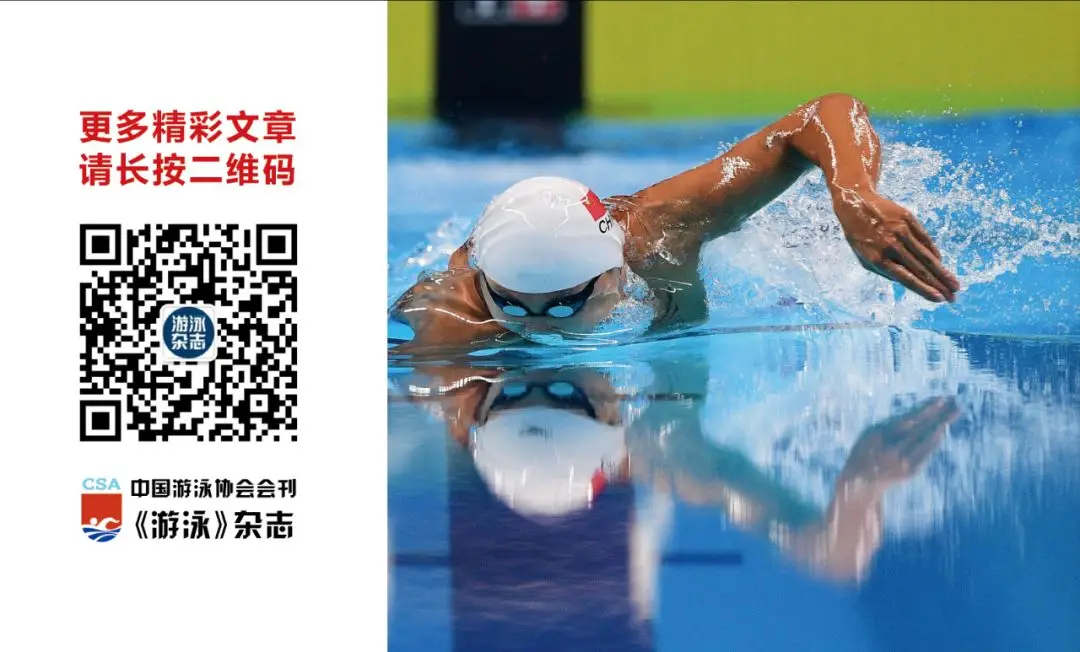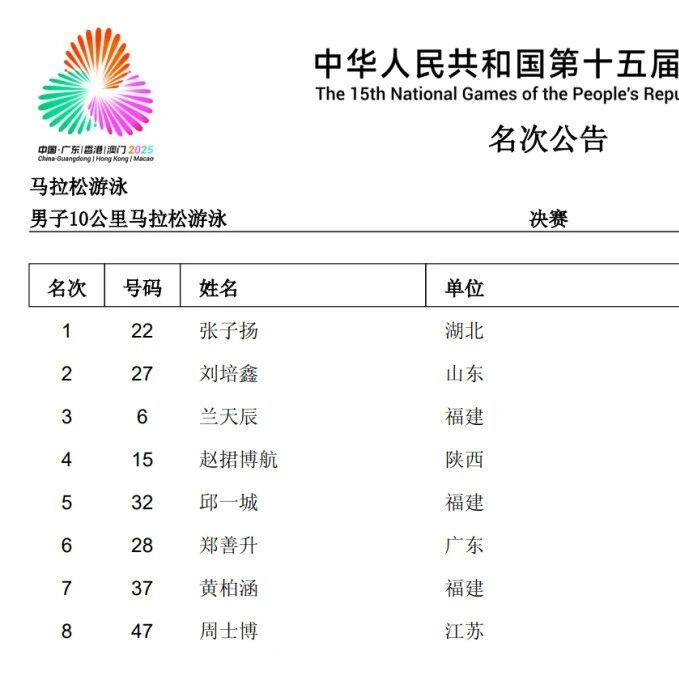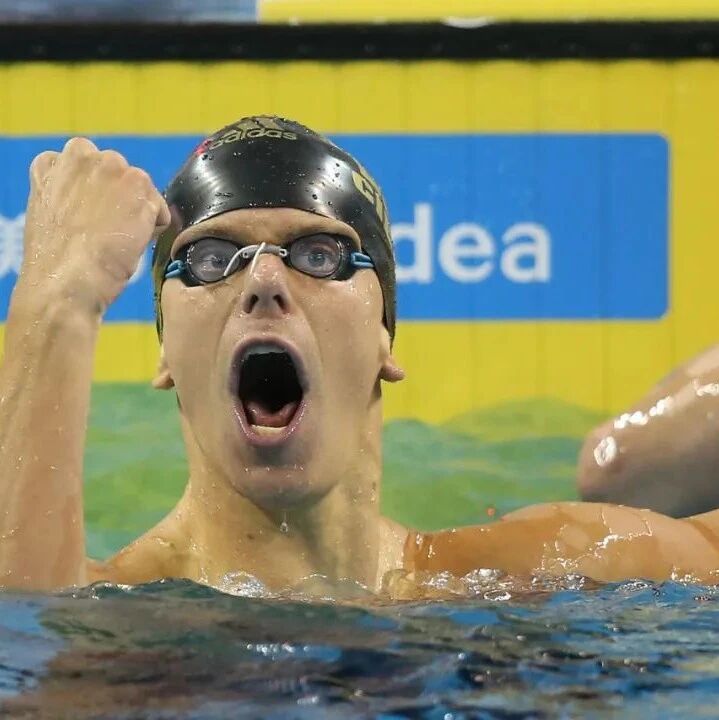The following excerpt is taken from the January 2025 issue of Shanghai's *Sports Science Research*, authored by Li Yongming and Guan Zhixun.
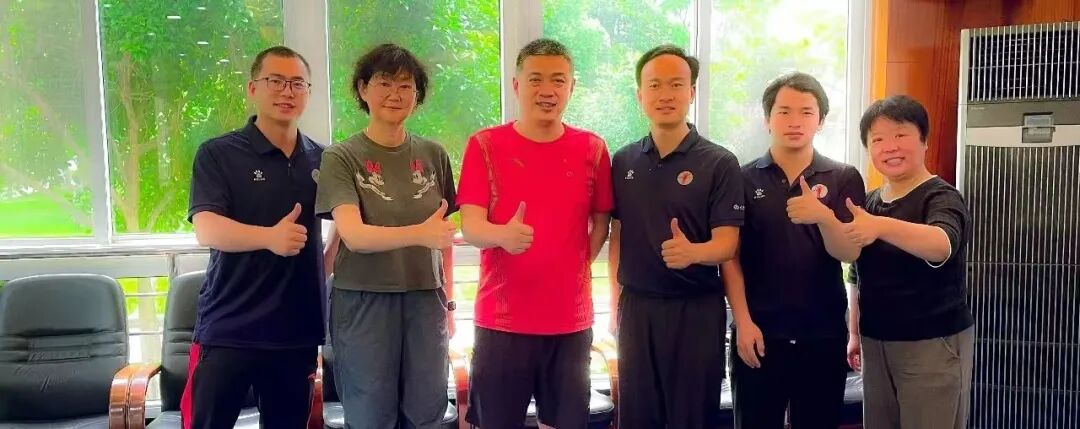 Third from the left is Cui Dengrong.
Third from the left is Cui Dengrong.
Editor's Note:The development of high-level swimming athletes has long been a focal point for both academic and coaching communities; however, the prolonged and intricate nature of the training process has often resulted in an incomplete and unclear understanding of this critical issue. This article zeroes in on the core elements and key challenges within the high-performance swimming athlete development system. Through interviews with Cui Dengrong, a world-class coach renowned for nurturing Olympic and World Championship-winning athletes, the discussion explores six pivotal topics: athletes' growth journeys, coaching philosophies, the evolving role of coaches in athlete development, the dynamics of the coaching, science, and medical support teams, the principles of scientific training, and the importance of long-term athlete development—providing valuable insights to guide the cultivation of elite swimmers.
Cui Dengrong, male, born in June 1969 in Shanghai, is a Chinese swimming coach who currently serves as the head coach of the Swimming Center under the Shanghai Municipal Sports Training and Management Center, while also coaching the national swimming team. Since the 2012 London Olympics, he has nurtured multiple Olympic and world champions, including Zhang Yufei, Qin Haiyang, and Lu Ying. In December 2023, Cui Dengrong was awarded the 2023 Asian Coach of the Year for his outstanding leadership and achievements.
In the field of swimming, many coaches around the world have successfully trained Olympic and world champions—but very few can consistently produce multiple Olympic and world champions. Cui Dengrong’s remarkable journey from a retired professional athlete to a world-class coach offers invaluable insights into understanding the unique characteristics and principles of swimming, as well as providing critical guidance on selecting and nurturing talented swimmers over the long term. His coaching philosophy and training methods also serve as an important reference for developing high-caliber swimming coaches at the elite level.
Li Yongming (referred to as “Li” below): Coach Cui, you’re a true native of Shanghai—born and raised here, even having competed as an athlete in the city. After retiring from your athletic career, you went on to coach in Shanghai. Could you briefly share your journey as an athlete, starting from when you first began learning to swim?Cui Dengrong (referred to as "Cui" below): I joined the Shanghai swimming team in 1983 at the age of 14 and trained for six years in long-distance events before officially retiring in March 1990. When I was an athlete, I typically trained six days a week, with three sessions each day. My weekly water-based training volume usually hovered around 100,000 meters—roughly 100 kilometers per week. This intense training regimen generally lasted for about six weeks during the preparation phase. Back then, nutritional support and recovery strategies weren’t as advanced as they are today, so many athletes struggled to keep up, and I was no exception. In fact, I was always the most dedicated athlete on the team, practically serving as a role model. Yet, my relentless training eventually took its toll on my health—most notably, I developed premature ventricular contractions. Looking back now, I realize that the excessive training load at the time likely contributed to this issue.Li: You’ve been coaching the Shanghai team since 1990—more than 30 years now. Could you take a moment to reflect on your coaching journey over these three decades?Cui: "I started coaching in 1990, spending a total of eight years as an assistant coach. For the first four years, I didn’t work directly with athletes—instead, I focused on learning from other coaches. After those initial four years, I became an assistant to Coach Pan Jiazhang, helping him guide the athletes under his supervision. It wasn’t until 1998 that I began independently coaching athletes. Over the next year and a half, I trained two standout swimmers: Song Xueliang, who went on to win the men’s 1500m national title in 2000 in Jinan, Shandong; and Shi Weihui, who claimed the women’s 400m individual medley crown in 2000 in Jiangmen, Guangdong.
In 2013, I took on Qiu Ziaao, whom I successfully mentored until 2015, guiding him to another historic milestone—winning the men’s 1500m national title at the Fuzhou Youth Games.
Additionally, since 2002, I’ve been coaching Lu Ying and Shi Yang, both born in 1989. Despite facing numerous challenges and setbacks throughout their careers, they’ve enjoyed relatively long stints with the Shanghai team. Shi Yang retired after the 2017 National Games, while Lu Ying hung up her fins after the 2021 edition. Notably, neither athlete achieved their personal best performances during their peak competitive years.
Lu Ying, for instance, didn’t truly break through until she was 21, earning bronze in the women’s 50m butterfly at the 2010 Guangzhou Asian Games. It wasn’t until she turned 23 that she secured a silver medal in the women’s 100m butterfly at the 2012 London Olympics. And at age 26, competing at the Kazan World Championships, she teamed up with her teammates to claim the gold medal in the women’s 4×100m medley relay."Li: Developing athletes is a long-term process, and the growth of coaches follows the same path. Although you began coaching in 1990 and started working with the national team during the London Olympics cycle in 2012, it wasn’t until the 2020 Tokyo Olympics that your athlete finally clinched an Olympic gold medal. How do you view the long-term nature of a coach’s development? Is this period of relative quiet—or even stagnation—a necessary stage on the journey? And more importantly, how can we shorten this crucial phase of building expertise and experience?Cui: It depends on how we define "long-term." Globally speaking, most swimming coaches begin their careers as national team coaches on the world stage by their 30s or 40s. While a period of relative quiet is undoubtedly an essential part of a coach's journey—a time for deep reflection and exploration—when it takes far too long for a coach to reach world-class performance levels, it may indicate that the coaching development system and career-path design still need to become more efficient.As for shortening this cycle, I believe it’s definitely achievable. Effective learning and deliberate practice are undoubtedly the best pathways for coaches to accelerate their growth. Among these, the most critical step is formalizing the knowledge gained from practical training experiences. Over a long period and through extensive exploration with large-scale data, China’s approach to developing high-level swim athletes has become increasingly concrete and clear. However, we still lack a robust theoretical framework that can be seamlessly integrated into real-world practice—particularly when it comes to scientific training, which currently remains largely at the level of tacit, experience-based understanding that’s hard to articulate explicitly.Coaching is a highly practical profession. Given the individual differences in human adaptability, coaches must continually refine their skills through hands-on practice and reflection when working with diverse individuals, while also expanding their knowledge base. Yet, many coaches lack access to clear, accurate information—such as the results of previous experiments—and often find themselves revisiting past failures, which significantly prolongs their learning process. The key to advancing the scientific approach in coaching lies in the strategic, career-path design for coaches. If coaches receive highly structured training content, if specialized practice sessions are regularly updated to align with global trends, and if they have access to a robust social platform that facilitates ongoing peer-to-peer learning and collaboration, coach development can accelerate dramatically.Li: In 2023, you were awarded the Asian Coach of the Year. What qualities do you think an outstanding coach should possess?Cui: "This is a question that’s hard to answer precisely. Personally, I rarely have time to go home—since returning from training in Shanghai last May 2024, I haven’t been back for a full month already. I think treating your job as a true career is probably one of the key traits that set outstanding coaches apart."At the same time, I believe that building a healthy and equal partnership with athletes is also essential. In today’s competitive sports environment, everyone has the potential to be a leader. Modern coaches, in particular, need strong leadership skills to collaborate effectively with their athletes and move forward together toward shared goals.Specifically, coaches must first practice "strict management with heartfelt care"—which means rigorously guiding their athletes to adhere to the team’s rules, regulations, and discipline, such as ensuring they arrive at the training grounds precisely on time as required. At the same time, "heartfelt care" involves genuinely looking out for each athlete: offering support when they’re unwell, and promptly helping them relieve stress when they’re feeling down. Coaches should absolutely avoid adopting an authoritarian or overly controlling "parental" approach when managing their athletes. After all, coaching is an art form. While today’s athletes can be more challenging to manage compared to the past—and certainly require far greater sensitivity—physical punishment is strictly off-limits, let alone the even more harmful "cold violence."Finally, coaches must respect and trust their athletes. If an athlete says they’re not feeling well, I’ll always let them rest—no matter whether they’re a young or seasoned athlete. Some might argue that athletes are just using illness as an excuse to avoid training, but I believe in trusting them. Even if an athlete claims to be unwell, there’s usually a valid reason behind it. After all, if they’re genuinely tired or have caught a cold, giving them a break is the best course of action—because pushing through when they simply need a day off could do more harm than good. And if they’re truly sick, forcing them to keep training could even worsen their condition, ultimately derailing their progress altogether.
This article originated in Shanghai."Journal of Sports Science," Issue 1, 2025,Reprinted in the January 2025 issue of *Swimming* magazineTo read the full article, please visit our Weidian store to subscribe.
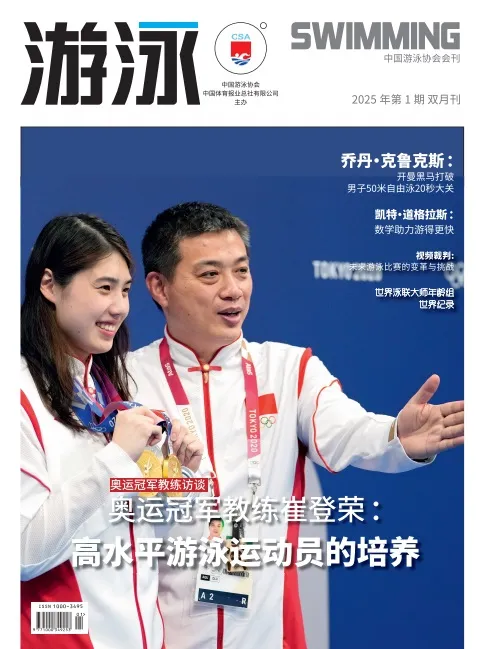
Subscribe to Swimming Magazine—right here!👇Submissions are welcome! Please send your manuscripts to the editorial office of *Swimming* magazine at: [email protected]
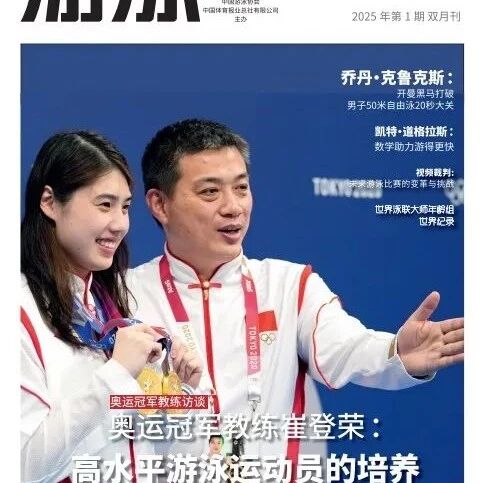
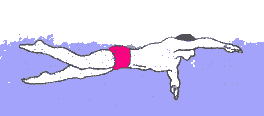

 Third from the left is Cui Dengrong.
Third from the left is Cui Dengrong.
